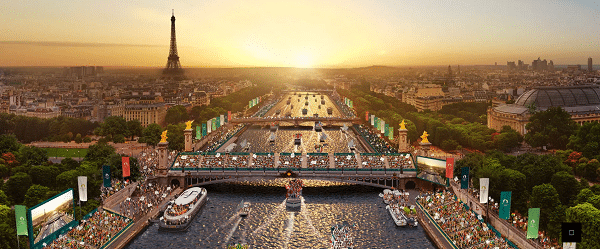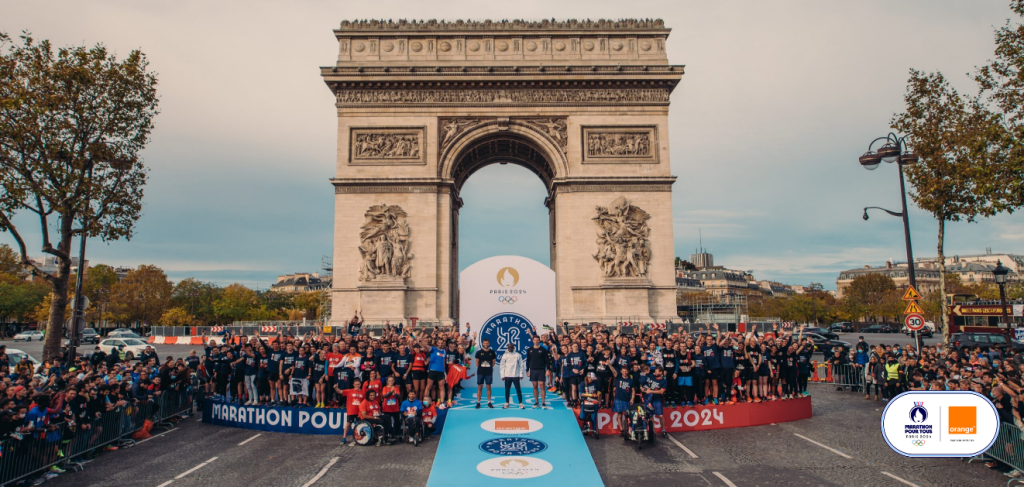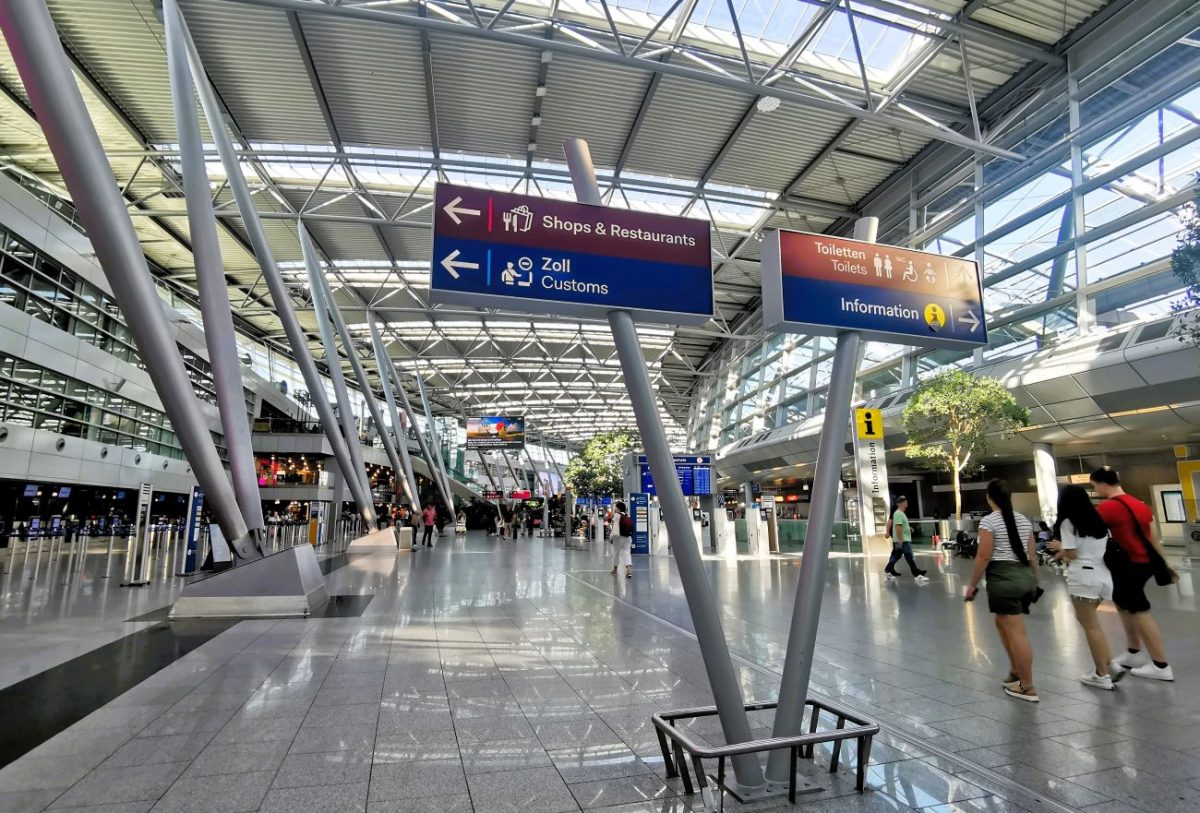A century after hosting its last Olympic Games, Paris 2024 will revive the Olympic Torch with a visionary flame!

With Paris 2024 promising to deliver sustainable and socially responsible Games in line with the Olympic Agenda 2020 and the IOC’s New Norm, these are set to be the greenest Olympics Games in history! Paris 2024 will adopt an eco-conscious approach, encouraging energy conservation, innovation and creativity. Through its Legacy and Sustainability Plan for the Games, Paris 2024 pledges to halve the emissions arising in relation to the Games, while offsetting more CO2 emissions than they will generate. This strategy will deliver an ambitious, spectacular, universal event that is more responsible, more sustainable, more united and more inclusive. The Legacy and Sustainability Plan provides the guidelines and framework for every decision being made when it comes to the Games, such as the venues being used, transportation, catering and much more.
These Games also aim to keep in touch with the times and inspire new audiences through sports that are engaging, accessible and inclusive. Taking place exactly 100 years after the last time France hosted the Summer Olympic Games in 1924, Paris 2024 seeks to celebrate sports and deliver exceptional Games whilst simultaneously responding to the current challenges we face.
Highlights
- The strategy that will revolutionise the Games
- Transforming famous Parisian landmarks into sporting arenas
- An Olympic Village designed with athletes and the planet in mind
- Environmentally friendly modes of transportation to reach the Games
- Sustainable and zero-waste catering to halve the carbon footprint of meals
- Games wide open
The strategy that will revolutionise the Games
The Legacy and Sustainability Plan guides every decision being taken at Paris 2024. This strategy seeks to promote and take advantage of what makes the Games unique from the event’s capacity to bring people together and shine a spotlight on outstanding initiatives and practices. This plan was established in 2017 and it’s aims go beyond 2024. The strategy is made up of 6 pillars which focus on two principal goals:
- Delivering Games that can be held up as an inspiring example both environmentally and socially.
- Leave a strong social and environmental legacy that harnesses sport to benefit individuals, society and the planet.
Delivering eco-responsible Games that harness sustainable solutions is one of the key pillars of this strategy. This pillar is based on the idea that the conventional Games model was no longer fit for its purpose and would not have allowed France to meet its climate commitments. As a result, Paris 2024 has undertaken a commitment to align with the objectives of the IOC’s Olympic Agenda 2020. Examples of this includes the decision to organise the first edition of the Games in line with the Paris Agreement by halving the event’s greenhouse emissions and guarantying carbon neutrality. Further examples include to deliver an edition of the Games that can be held up as an inspiring example in terms of circular economy and biodiversity.
This commitment binds Paris 2024 along with its stakeholders to take decisions accordingly to this goal. This translates into: the supply of renewable electricity during the Games, sustainable catering, a zero-waste target for the event, a fleet of clean vehicles to transport the Olympic and Paralympic family, competition venues spectators can reach using public and environmentally friendly means of transport, the integration of circular economy principles into permanent and temporary constructions, and the deployment of sustainable technology.
Transforming famous Parisian landmarks into sporting arenas
- The sporting arenas are key to ensure successful games, in order to meet the aim of halving carbon emissions, Paris 2024 will see its famous monuments and sights transformed for the Olympic Games to host an array of tournaments and events across the city.
- Firstly, the Games will use 100% renewable energy to power the Games and the Organising Committee’s headquarters.
- The Games will also use 95% of existing venues or temporary venues as a means to minimise the environmental impact. By doing so Paris 2024 is able to significantly reduce the carbon footprint as well as put a spotlight on to the wealth of French architecture by transforming some of Paris’ infamous landmarks into sporting arenas. For instance, Le Chateaux de Versailles will be used for the equestrian events, similarly the Champ de Mars (beneath the Eiffel Tower) will be used for beach volleyball. Moreover, the Paris Expo Center at Porte de Versailles in the 15th will be transformed for table tennis and handball tournaments, Roland Garros will be used for the tennis tournaments, Le Grand Palais will also be used for fencing and taekwondo events.
- In terms of the venues that will be built low-carbon construction and retrofits methods and materials will be used, one example includes SOLIDEO a bioclimatic design of structures using bio-sourced materials whenever feasible. This technique takes the structure repurposing principle further.
- With the River Seine being at the heart of Paris 2024 particularly with the opening ceremony taking place on along 6km of the Seine, the French capital is determined to clean up the River Seine and aims to open it to the general public for swimming from 2025.
- Paris 2024 will also be able to track their carbon footprint every step of the way and ensure that the target set are met.

An Olympic Village designed with athletes and the planet in mind
- For the Olympic Village currently being built in Saint-Denis in the northern suburbs of Paris, low carbon materials and methods will be used in order to halves the carbon emissions. This includes:
- Using 94% recycled materials.
- A special construction process that emits half the carbon of typical processes.
- New architectural techniques such as wooden buildings, flexible structures, internal-external air quality, and low-carbon emissions concrete. For instance, the cement producer Ecocem will provide its new ultra-low carbon cement for the project. This alternative to traditional cement will significantly reduce the carbon footprint.
- The aquatics centre will be constructed using bio-based building materials only, with a timber structure and roof frame; it will be covered with solar panels and serve as a solar farm.
- Once the Games are over the Olympic Village will be used as offices and flats in Saint-Denis. Putting the spotlight on Saint-Denis will also act as a means to regenerate attraction to this suburb of Paris and help visitors to see the area as welcoming, diverse and culturally rich.

Environmentally friendly modes of transportation to reach the Games
- Given that millions of spectators will attend the Games and 10,500 athletes will participate, it is crucial to ensure that the means of transportation available are in line with the sustainability principle of the Paris 2024 Games.
- The Olympic Torch will make the journey from Greece to Fance via boat to respect the sustainability principles set for the Olympics.
- A fleet of clean vehicles will transport the Olympic and Paralympic family.
- Spectators will be able to reach the competition venue using public and environmentally friendly means of transportation, this is overseen by Île-de France Mobilités in the Greater Paris Region, in the form of buses, metro and RER lines and trams.
- Paris is also set to open 55 kilometres of additional cycling lanes for the 2024 Olympics. This will allow spectators to cycle from the city centre to sporting sites at the Paris 2024 Olympic and Paralympic Games.
- Using clean energy to power the vehicles transporting the athletes, and making the Games accessible via public transport or other environmentally friendly modes of transportation such as cycling will significantly reduce the carbon footprint of the Games.

Sustainable and zero-waste catering to halve the carbon footprint of meals
- With 13 million meals served during the Olympic and Paralympic Games it is clear that sustainable and zero-waste catering is key.
- Twice as many plant-based foods per meal, with 100% certified food to guarantee the origin and quality of the products (80% of the supply from France, 25% of which will be sourced within 250 kilometres of the competition sites, 100% responsible fishing, 100% French dairy products, etc.).
- The objective of zero-waste will be achieved by sizing quantities, designing recipes that reduce the risk of waste and recycling 100% of non-consumed food.
- Half the amount of single-use plastic will be used in catering, in response to high expectations, particularly from athletes and consumers, to reduce plastic pollution. This will be achieved by reusing 100% of the tableware for on-site catering, through the provision of returnable containers and by collecting and recycling 100% of the plastic that could not be avoided.
- Moreover, 100% of the equipment and infrastructure used for catering during the Games will be reused. The Paris 2024 Games anticipate the reuse of tableware, such as cutlery and plates, as well as catering facilities, most of which will be in existing structures. For instance, catering in the Athletes’ Village will be provided in the Cité du Cinéma (a giant film studio complex in Saint Denis). In total, these targets will halve the average carbon footprint of a meal during the Games.

Games wide open
- Inclusivity will be present at every level of the Olympic and Paralympic Games. Starting with the relaying of the Olympic Torch whereby the selection criterion will be inclusive by ensuring a diverse selection of people whether it be in terms of disabilities or other minorities.
- The Opening Olympic Ceremony will break tradition by taking place in the heart of Paris with the Seine as a backdrop along with Paris cultural heritage, for the first time this ceremony will be accessible to over 600,000 spectators.
- Inclusivity does not stop there as for the first time in the history of the Games, the public will have the opportunity to take part in the ‘Paris 2024 Mass Participation Marathon’, whereby participants will be able to take part in the event in the same conditions as those experienced by Olympic athletes.
- Moreover, the Games will use immersive technology such as virtual reality and connected sports to unable people around the globe to take on the best international athletes.
- Paris 2024 is also launching a charitable ticketing scheme in partnership with the charity ‘Secours Populaire’ whereby everyone who buys tickets for the Games will have the opportunity to donate 2 euros to enable people living in low-income households to have the opportunity to attend the Games.
- It is clear that the official slogan of the Paris 2024 Olympics and Paralympic Games ‘’Games Wide Open’’ further reiterates that inclusivity and diversity are to be at the heart of the Paris 2024 Games.

The Paris 2024 Olympic Games will be unlike any other Games, Paris 2024 will make sure to revive the Olympic Torch with a visionary flame! With its commitments to making the Games more sustainable and inclusive, Paris 2024 aims to set a precedent not only for future Olympic Games but international sporting events in general. Highlighting the need and importance to adapt and respond to the current challenges we face.
Find out more about the steps that France is taking to go green here: Going green: France’s steps to become a leading European destination for sustainable tourism (franceuncovered.com)
Learn more about Atout France
[related_post]Have your say Cancel reply
Subscribe/Login to Travel Mole Newsletter
Travel Mole Newsletter is a subscriber only travel trade news publication. If you are receiving this message, simply enter your email address to sign in or register if you are not. In order to display the B2B travel content that meets your business needs, we need to know who are and what are your business needs. ITR is free to our subscribers.















Airlines suspend Madagascar services following unrest and army revolt
TAP Air Portugal to operate 29 flights due to strike on December 11
Qatar Airways offers flexible payment options for European travellers
Air Mauritius reduces frequencies to Europe and Asia for the holiday season
Airbnb eyes a loyalty program but details remain under wraps